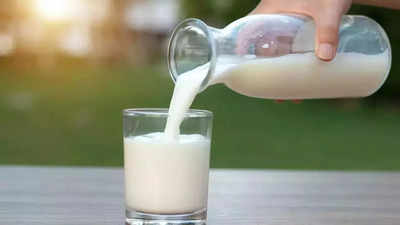[ad_1]

SRINAGAR: Some locations milk custom, others float, and some like Dudran personal and embrace it on daily basis, unfettered by modernity and motive.
This tiny, picture-postcard village in J&Okay’s Baramulla district lives life the old school approach — simply as its sylvan span ringed by mountains, cattle grazing on the meadows, and cottages alongside streams evoke the creativeness of a childhood portray.
What lies beneath the veneer of this idyllic existence is a narrative of native ingenuity as fascinating in its origins as in its sustainability.
Dudran, because the identify suggests, is a “milk village” rooted within the hoary traditions of cattle rearing and dairy courting again centuries.
Every of the 70-odd households on this hamlet 14km from Boniyar in Uri, a border landmark steeped in mythology but extra well-known for its hyperlink to the 2016 surgical strikes on terrorist camps in Pakistan, has been engaged in dairy farming for generations.
The bulwark of this pastoral legacy is the doud khot, the Kashmiri time period for small vault-like buildings constructed with stones and planks of wooden alongside the trail of pure springs and meant to perform as refrigeration methods with out electrical energy.
“The doud khots are distinctive to us, based mostly on the knowledge of our ancestors,” dairy farmer Zahoor Ahmad Lone tells TOI. “Dudran is not only a village. It is a repository of tradition. We take pleasure in producing the best dairy merchandise — milk, cheese, butter or curd — utilizing conventional strategies.”
The doud khots dotting Dudran’s panorama not solely assist retailer milk and different dairy merchandise for days with out spoiling, additionally they safeguard the inventory in opposition to intrusions by wandering wildlife.
Fatima Bibi, 50, earns round Rs 15,000 a month after accounting for all recurring bills of her household commerce. She attributes the standard of milk that Dudran produces to the abundance of pastures that preserve cattle wholesome with out having to depend on dietary supplements. “Every family within the village will get a yield of 10-15 litres of milk a day, which is first rate,” she says.
Summers are the most efficient. Utilizing a picket contraption, milk saved in aluminium pots contained in the doud khots is curdled repeatedly to supply butter within the age-old custom of “gurus mandun”. In native parlance, gurus means buttermilk.
Abdul Razaq Dar, 54, is among the many proud practitioners of this method that has survived the ravages of change. “The information handed down generations has served us effectively, and we see no purpose to do something totally different,” he says.
[ad_2]
Source link
This Submit could comprise copywrite


